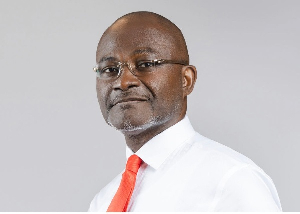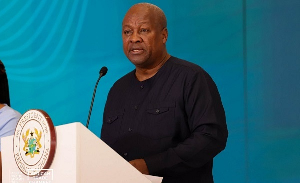In August 2010, I facilitated the National Mathematics Camp and followed it up with a national tour of all 10 regions of Ghana.
Lessons from facilitating the camp and the tour began my journey to study the trend in performance of the West African Examination Council (WAEC) West Africa Secondary School Certificate Examination(formerly known as Senior Secondary School Certificate Examination) WASSCE for short.
Between 1999 and 2008, a total of 905,102 candidates sat for the SSSCE/WASSCE. Out of that number, only 88,590 representing 9.8% passed to further their education at the tertiary level.
The enrolment figures since 1999 has been on the increase. Whereas only 57816 candidates sat for the exam in 1999, 131268 wrote the exam in 2008 giving a percentage increase of 56%.
Despite the enrolment increase, the corresponding jump in performance is very low. In 1999, only 6% of the candidates qualified and in 2008 only 13% made the mark.
The trend has not been any different from the subsequent years, 2009-2015, In 2014, only 28% passed and despite the increase in the number of candidates in 2015, the number of candidates qualifying dropped to ?25%.
In neighboring Nigeria, it is on record that over 70% of candidates do not make the adequate grades to pursue further education in the same WASSCE exams.
A study by WAEC spanning 2006-2010 analyzing performance of member countries was consistent with independent analysis. Not more than 30% of candidates sitting the WASSCE exams ever passed to enter tertiary level education.
The big question on everyones’ lips is whether the system has been set up to continually fail students sitting the examination. Since the introduction of SSSCE/WASSCE, why have we not been able to make it pass the 30% pass rate?
Could it be the way the subjects are taught or the nature of the examination are not in line with the teaching? Do we need a regional examination body like WAEC? Are examiners provided professional development to be abreast with assessment methods beyond the coordination meeting they attend?
What is WAEC’s engagement with parents, teachers, schools and students beyond the examination? How do we improve on our gains at WAEC examination?
Government and other stakeholders have over the last two years invested heavily in programs to beef up performance yet the results from WAEC shows otherwise. Are the interventions not working? What has been WAEC’s engagement with these interventions by government and the NGOs. There are more questions than answers.
Finally how can we improve the performance in WAEC examinations in the coming year? Schools reopen in September, what do we have to do so that come July/August 2016 our performance in WAEC examination would go pass the rhetoric?
The writer is the founder of Vedic Math Ghana and CEO of NOVAN Education & Training
Miracule Gavor
(source : Africa Schools Online)
Opinions of Thursday, 20 August 2015
Columnist: Miracule Gavor















